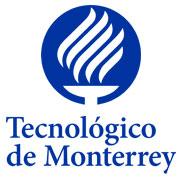
Tecnológico de Monterrey was founded in 1943, a vision of Eugenio Garza Sada and a group of businessmen. The university is a private, non-profit institution, independent and not related to any political party or religious group. We have 26 campuses spread-out all-over Mexico and 18 field offices in several countries.
For seven decades, we have been transforming the lives of thousands of people who, in turn, are transforming their organizations, development and collaboration settings, communities and the country. We educate agents of change who are willing to be increasingly competitive, for the benefit of all; more willing to be than to have, to serve than to possess.
At Tecnológico de Monterrey, we educate, transform and serve the people who live in an increasingly complex, turbulent and challenging world, who will use technologies that have not yet been invented, solve problems that have not yet been detected and lead companies that have not yet been created. In order to respond to this challenge, our task is to develop the skills and aptitudes necessary to recover creative and critical thinking in our students. Our commitment is to continue to evolve, creating disruptive models, guided by innovation to design the future and continue to transform lives.
We are focused on being leaders in entrepreneurship and ethics and citizenship, as we aspire to become one of the top 100 universities in the world and the best in Latin America.
Today we are ranked 2nd in employer reputation in Latin America and 40th worldwide. In 2013, we became the first university in Latin America to acquire QS 5-Star rating, positioning us among the 38 universities worldwide with this distinction, according to the British ranking agency Quacquarelli Symonds (QS).
We are leaders in patent applications in Mexico, and the private university with the highest number of research professors who are members of the Mexican National System of Researchers.
We conduct scientific and technological research in strategic areas to meet the nation’s social, economic and environmental demands: biotechnology and food, social sciences, regional development, social development, sustainable development, education, entrepreneurship, government, humanities, manufacturing and design, mechatronics, nanotechnology, business, health, and information and communications technologies.
